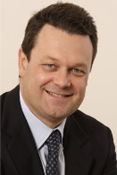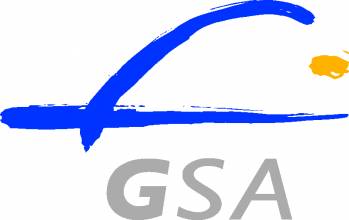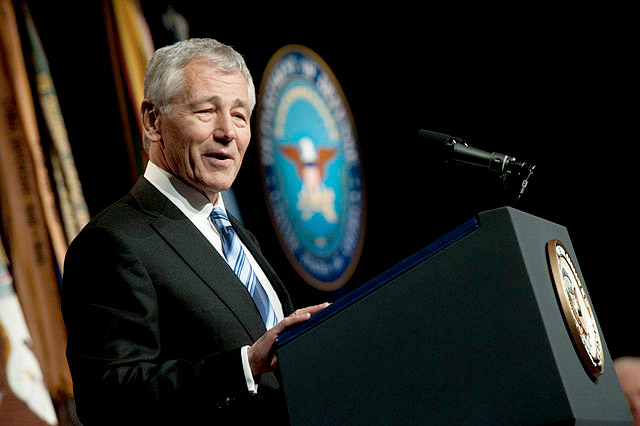
House-hunting is turning out to be one of the first tasks facing Carlo des Dorides, new executive director of the European GNSS Agency, also known by the acronym — GSA — of its former name, the GNSS Supervisory Authority. And as with many new homeowners, security will be well up on the list of attributes.
Des Dorides is engaged in an expedited process to find a new home for the GSA in Prague, Czech Republic,
House-hunting is turning out to be one of the first tasks facing Carlo des Dorides, new executive director of the European GNSS Agency, also known by the acronym — GSA — of its former name, the GNSS Supervisory Authority. And as with many new homeowners, security will be well up on the list of attributes.
Des Dorides is engaged in an expedited process to find a new home for the GSA in Prague, Czech Republic, where the agency “nominally” expects to move sometime next year — leaving the offices that it has occupied in Brussels for nearly four years.
Des Dorides, who assumed office in January of this year, spoke with Inside GNSS during the recent Munich Satellite Navigation Summit in Germany. The conversation revealed that the office move and establishing of a Galileo Security Monitoring Center (GSMC) for Galileo and the European Geostationary Navigation Overlay Service (EGNOS) will occupy a good deal of the new director’s attention in the near future.
At the same time, the GSA will continue its efforts to advance the commercialization of the European GNSS programs, including market research, planning, promotion, and encouragement of “downstream” applications and companies, particularly small and medium-sized enterprises (SMEs).
Finding GSA’s New Home
Des Dorides recently was in Prague discussing the agency’s requirements for facilities there and negotiating the terms of the agreement with the Czech Ministry of Transport. He expects that the GSA will have completed a facilities agreement this summer.
Czech officials are “eager” to have GSA make the move, he says, although he has to give consideration to the agency’s current 45 staff members, many with established families and apartments in Brussels. Another 15 members will be added to the agency staff by next year, many as part of the build-out of the GSA’s security responsibilities.
Under the terms of European Union (EU) Regulation 912/2010 approved by the European Parliament and European Council last September, the GSA serves as operator of the GSMC, and “ensure[s] that the secretariat and all the resources necessary for proper functioning are provided to the Security Accreditation Board and to the bodies set up under its authority.”
However, responsibilities for security matters, including accreditation, will be handled by an autonomous Security Accreditation Board (SAB) for European GNSS systems within the GSA. It will be composed of representatives from each of the EU members states, one from the European Commission (EC), and one from the High Representative for Foreign Affairs and Security Policy.
Under Regulation 912/2010, the SAB takes “security accreditation decisions.” Specifically, this will be approval of the GNSS security accreditation strategy and satellite launches, authorization to operate the Galileo and EGNOS in their different configurations and for the various services, the authority to operate ground stations and “in particular the sensor [Galileo and EGNOS monitoring] stations located in third countries,” as well as authorization to manufacture receivers containing PRS [public regulated service] technology and their components.”
EU member states are responsible for decisions as to whether to allow the use of PRS equipment by agencies or organizations within their territory, but accreditation of their security arrangements will fall to the SAB.
The SAB will direct its decisions to the EC, which under a previous regulation had been responsible for security matters, and the SAB chairperson — not the GSA executive director — is responsible for representing the agency on security matters.
For the GSA, Olivier Crop is the head of the agency’s security department. Many of the additional FTE will staff the security function, but the security structure will separate those responsible for setting requirements for the security accreditation from people who evaluate and grant or deny accreditation of applications of individual member states, des Dorides says.
Beyond Security
Besides security, the GSA’s other primary role is encouraging market development for Galileo and EGNOS products, services, and applications. The agency released a GNSS market study for Europe last November. The GSA also sponsors a special prize for EGNOS applications in the European Satellite Navigation Competition (ESNC), and Des Dorides says he wants to find other ways in which to help transform ideas for Galileo/EGNOS applications into going concerns.
“Understanding the needs of our users is one of our primary tasks at this point in time,” des Dorides said in a presentation during the Munich Summit. “But we also have to be sure that those users also understand EGNOS and Galileo, the new services and applications and that they are ready to take full advantage of them. This is why we are fostering a close dialog with user markets and working to support new ideas and applications.”
Over past three years, the role of GSA, was reduced from that originally envisioned when the Galileo program was pursuing a public-private partnership (PPP) for development and operation. Under the PPP model, the GSA would have been responsible for monitoring and implementing the contract with a concessionaire that would have built and operated the European GNSS system.
The official change of its name in October 2010 from the European GNSS Supervisory Authority to European GNSS Agency (while still retaining the familiar GSA acronym) reflected this diminished role.
Now des Dorides believes that the GSA may see this process reversed, perhaps with the GSA taking on additional responsibilities for oversight of EGNOS activities, which now reside in the EC Directorate General (DG) for Enterprise and Industry.
GSA is still a community agency, not an EC program office, and has its own administrative board of directors with representatives from each EU member state. The EC still participates on the GSA board, but instead of having a weighted vote equal to that of all the other members combined, it now has only five votes.
Keeping in mind the national sensitivities of EU politics, des Dorides may well benefit from the status of his Italian compatriot, Antonio Tajani, EC Vice-President for Transport Policy, probably the commission’s ranking official influencing GNSS policies and administration.
Prior to taking up his current GSA position, des Dorides was responsible for the EGNOS Program and examining the Galileo/EGNOS exploitation phase at the DG for Enterprise. Before joining the EC, he served as head of the Concession Department at the European GNSS Supervisory Authority and a similar role at the GSA’s forerunner, the Galileo Joint Undertaking. For more on des Dorides and the GSA, visit the agency’s website.






